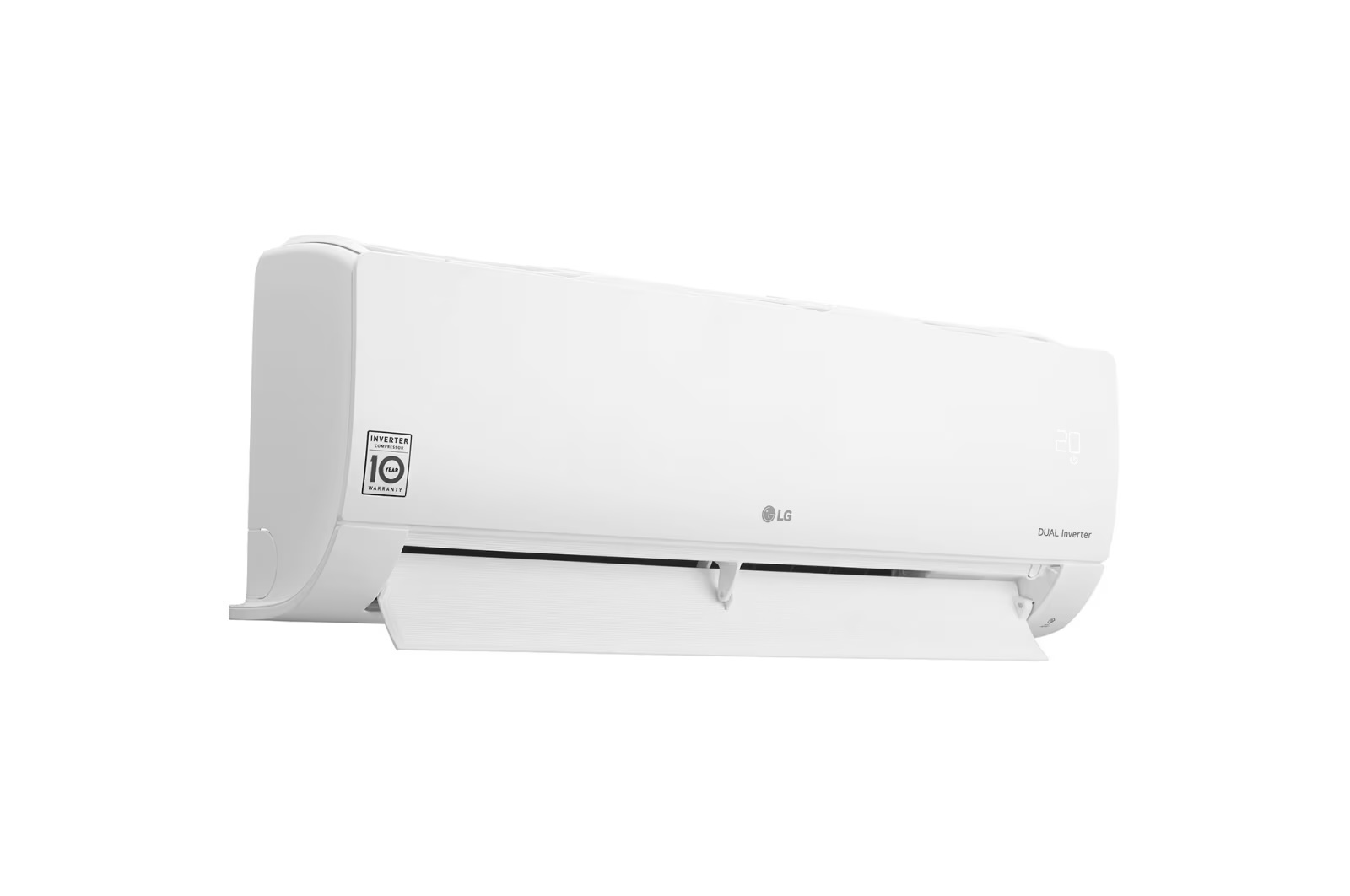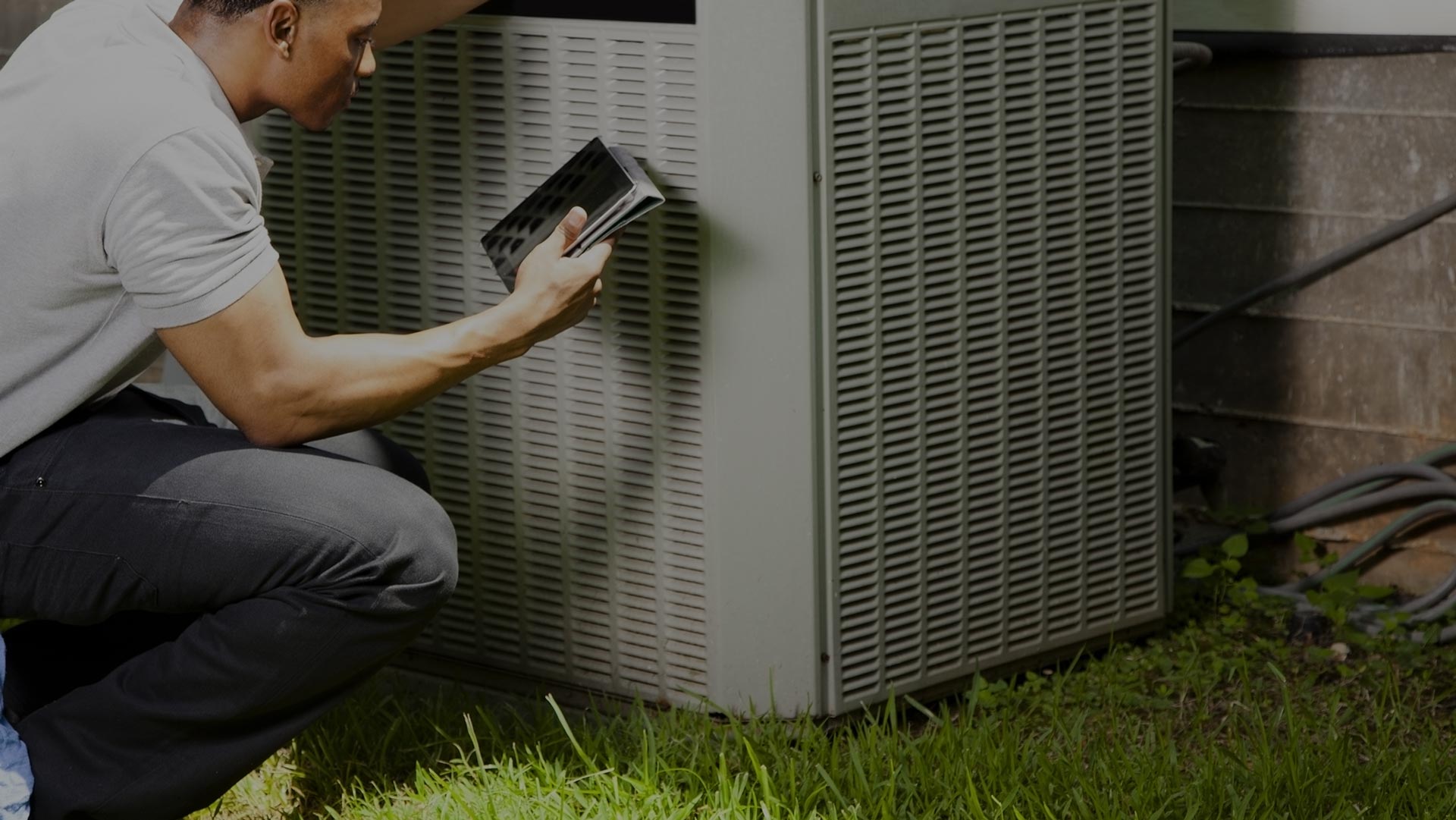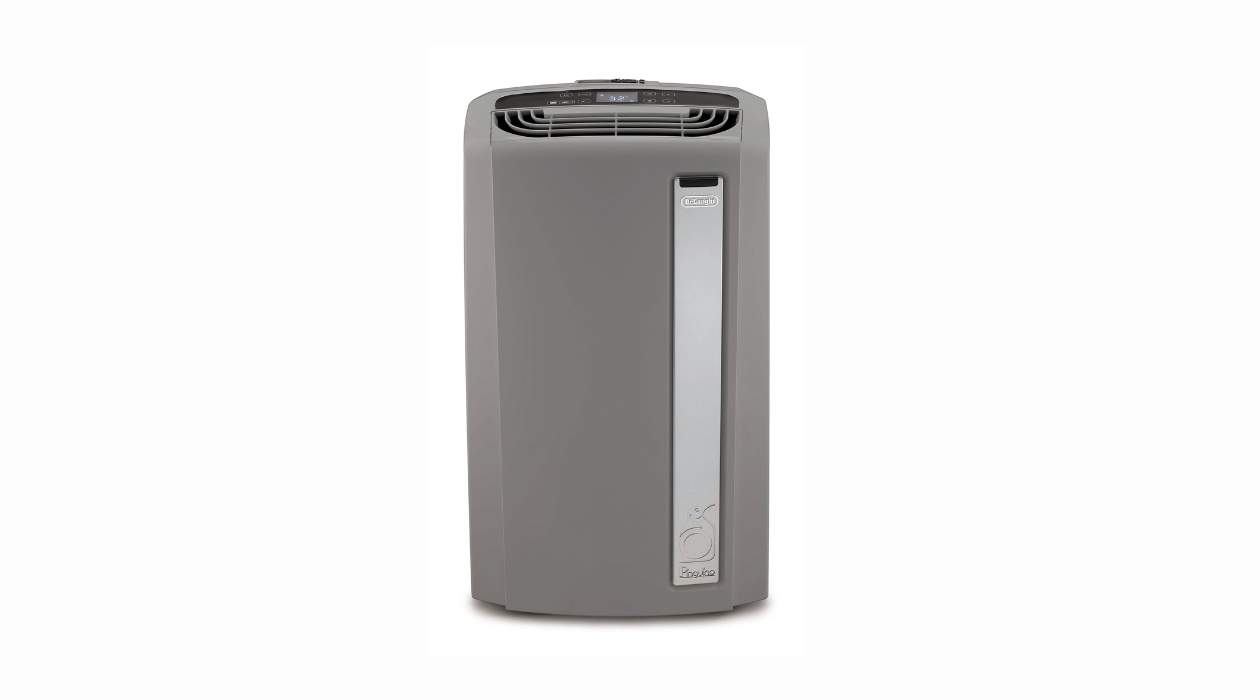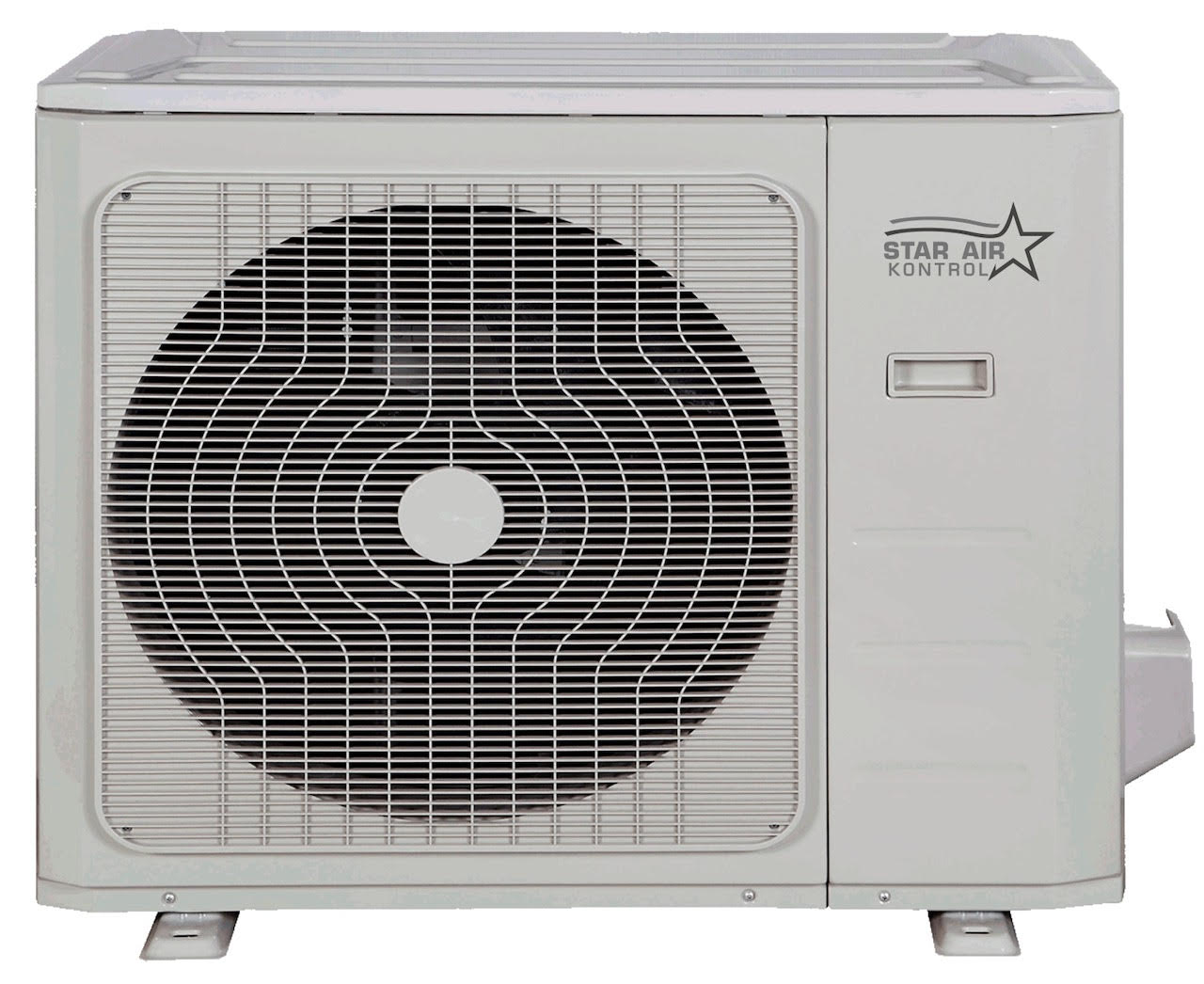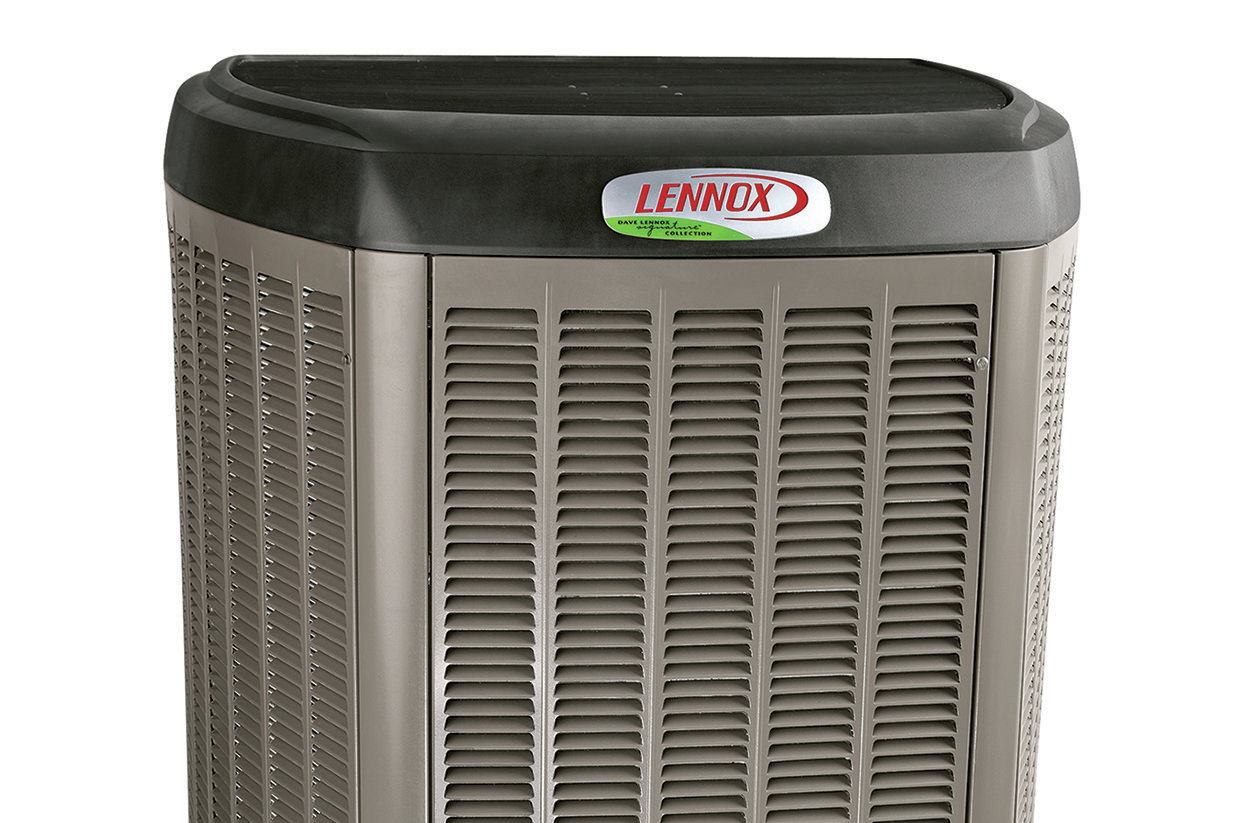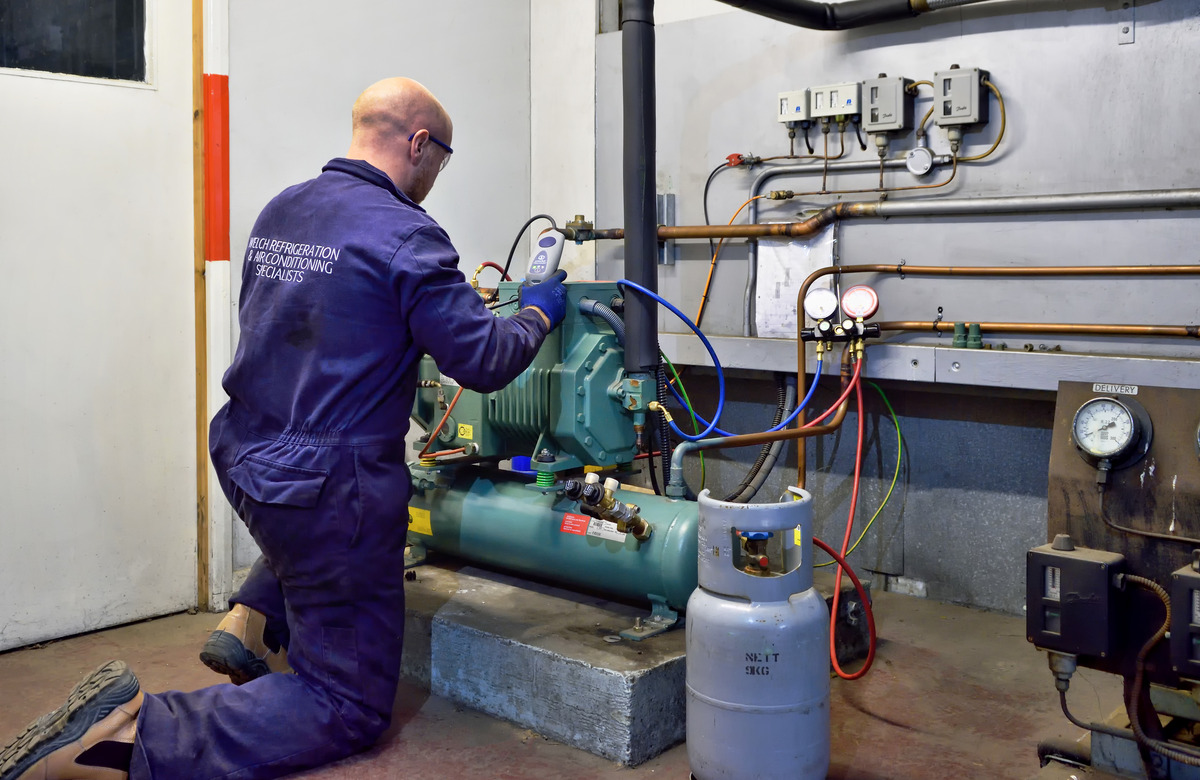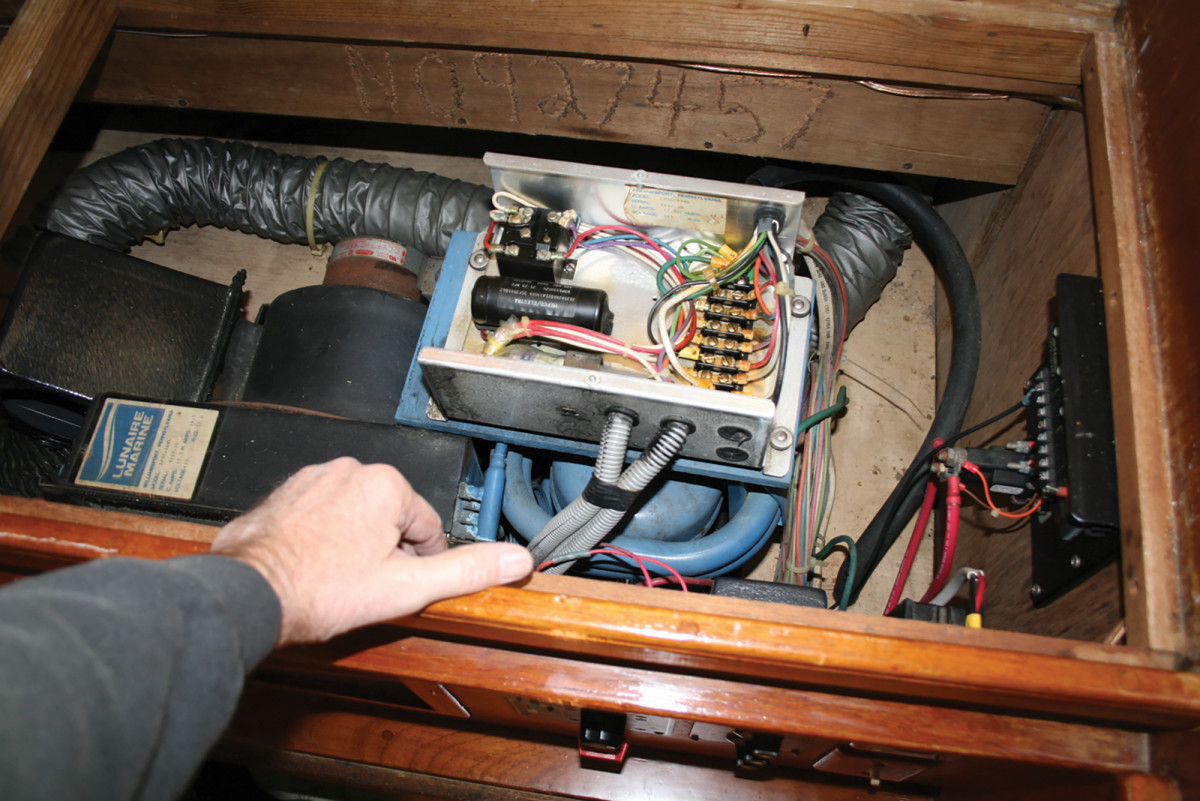Home>Home Maintenance>What Does EER Mean In Air Conditioning
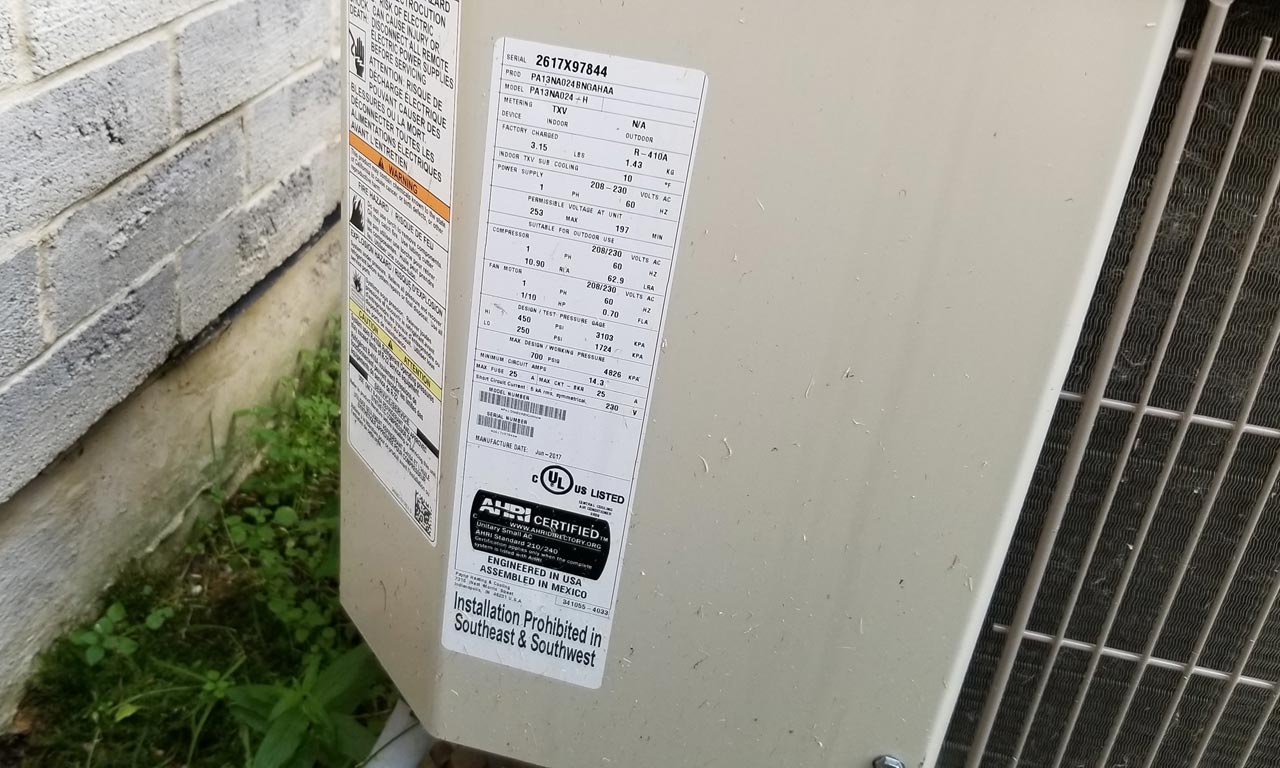

Home Maintenance
What Does EER Mean In Air Conditioning
Modified: August 29, 2024
Learn the meaning of EER in air conditioning and how it affects your home maintenance. Explore the importance of energy efficiency for optimal cooling and cost savings.
(Many of the links in this article redirect to a specific reviewed product. Your purchase of these products through affiliate links helps to generate commission for Storables.com, at no extra cost. Learn more)
Introduction
Welcome to the world of air conditioning! Whether you are a homeowner looking to upgrade your current system or a curious individual seeking knowledge about air conditioning, understanding the key terms and concepts is essential. One such term is EER, which stands for Energy Efficiency Ratio.
As our society becomes increasingly environmentally conscious and energy-efficient, it is important to understand how EER plays a crucial role in the performance and efficiency of air conditioning systems. In this article, we will delve into the meaning of EER and explore why it is essential for homeowners to consider this factor when purchasing or maintaining an air conditioning unit.
Without further ado, let’s dive into the world of EER and explore its significance in air conditioning.
Key Takeaways:
- EER, or Energy Efficiency Ratio, measures how efficiently an air conditioning system converts electricity into cooling power. A higher EER rating means lower energy consumption, cost savings, and a reduced environmental impact.
- Factors like proper sizing, maintenance, and technology can influence an air conditioning system’s EER. By optimizing these factors, homeowners can improve energy efficiency, save money, and enjoy a comfortable indoor environment.
Read more: What Is EER In An Air Conditioner
Understanding EER
EER, or Energy Efficiency Ratio, is a metric used to measure the efficiency of an air conditioning system. It is calculated by dividing the cooling capacity of the system in BTUs (British Thermal Units) by the amount of electrical power consumed in watts. The higher the EER rating, the more efficient the system is in converting electricity into cooling power.
For example, let’s say you have an air conditioning unit with a cooling capacity of 10,000 BTUs and it consumes 1,000 watts of electrical power. The EER rating of this system would be 10 (10,000 BTUs / 1,000 watts).
EER is an important factor to consider because it directly affects both energy consumption and cost. A higher EER rating means the air conditioning unit will be more efficient in cooling your space while consuming less energy. This translates to lower electricity bills and reduced environmental impact.
When comparing air conditioning units, it’s important to note that the higher the EER rating, the more efficient the system is. However, it’s also important to consider other factors such as the size of the space you need to cool, the climate you live in, and your personal preferences.
Now that you have a basic understanding of EER, let’s explore why it is important in the world of air conditioning.
Importance of EER in Air Conditioning
EER plays a critical role in the performance and effectiveness of an air conditioning system. Here are some key reasons why EER is important:
Energy Efficiency and Cost Savings
One of the primary benefits of considering EER is its impact on energy efficiency. Air conditioning can be a significant contributor to high energy consumption and electricity bills. By choosing a system with a higher EER rating, you can ensure that your air conditioner operates more efficiently, resulting in lower energy consumption and cost savings over time.
Environmental Impact
Reducing energy consumption not only saves money, but it also helps protect the environment. Air conditioning units with higher EER ratings use less electricity, which reduces greenhouse gas emissions and minimizes the overall carbon footprint. By prioritizing energy efficiency through EER, you can contribute to a more sustainable and eco-friendly lifestyle.
Read more: What Is Air Conditioning
Comfort and Performance
The EER rating is an indicator of how effectively an air conditioning system can cool a space. Higher EER ratings often result in faster and more efficient cooling, ensuring a comfortable indoor environment even in hot and humid conditions. By investing in a system with a high EER, you can enjoy better cooling performance and consistently comfortable indoor temperatures.
Long-Term Durability
Choosing an air conditioning system with a high EER rating often means investing in a higher quality and more durable unit. Manufacturers who prioritize energy efficiency tend to produce systems with better overall performance and longevity. By selecting an air conditioner with a high EER, you can enjoy the benefits of long-term durability and reliability.
In summary, considering the EER rating of an air conditioning unit is crucial for optimal energy efficiency, cost savings, environmental sustainability, improved comfort, and long-term durability. By understanding and prioritizing EER, you can make informed decisions when purchasing or maintaining your air conditioning system.
Factors Affecting EER
Several factors can influence the Energy Efficiency Ratio (EER) of an air conditioning system. Understanding these factors can help you make informed decisions when choosing and optimizing your air conditioning unit. Let’s explore the key factors that can affect EER:
Size and Capacity
The size and cooling capacity of an air conditioning system directly impact its EER. An oversized unit may have a lower EER because it will cycle on and off more frequently, leading to inefficient energy usage. On the other hand, an undersized unit may struggle to cool the space adequately and will work harder, consuming more energy. It’s important to choose a properly sized unit for your specific cooling needs to ensure optimal EER.
Read more: What Air Conditioning Does To Your Body
Installation and Ductwork
The installation of an air conditioning system and the quality of the ductwork can significantly impact EER. Poorly installed units or ductwork that is improperly sealed can lead to air leaks and reduced efficiency. Proper installation techniques and well-sealed ducts are crucial for maximizing the EER of your air conditioning system.
Climate and Temperature
The climate you live in and the ambient temperature can affect the EER of an air conditioning system. Systems operating in extreme heat will typically have a lower EER because they have to work harder to cool the space. It’s important to consider the climatic conditions of your region and choose a unit with a suitable EER to ensure efficient cooling even in hot climates.
Maintenance and Regular Servicing
Regular maintenance and servicing of your air conditioning system are essential for maintaining optimal EER. Dirty filters, clogged coils, and worn-out components can hinder the efficiency of the system and reduce its EER. It is important to clean or replace filters regularly and schedule professional maintenance to ensure that your system operates at maximum efficiency.
Technology and Energy-Saving Features
The technological advancements and energy-saving features incorporated into an air conditioning system can impact its EER. Units with advanced compressors, variable speed motors, and smart thermostats can optimize energy consumption and improve the EER. When exploring different options, consider the technology and features offered by each system to ensure the highest possible EER.
By considering these factors and taking appropriate measures, you can optimize the EER of your air conditioning system and enjoy energy-efficient cooling in your home or workspace.
Read more: What Does Fl Mean On An Air Conditioner
Benefits of High EER
Investing in an air conditioning system with a high Energy Efficiency Ratio (EER) comes with numerous benefits. Let’s explore why opting for a high EER unit is advantageous:
Energy and Cost Savings
One of the primary benefits of a high EER is the potential for significant energy and cost savings. Air conditioning units with high EER ratings are designed to operate more efficiently, meaning they consume less electricity while providing the same cooling capacity. By reducing energy consumption, you can lower your monthly utility bills and save money in the long run.
Environmental Sustainability
Choosing an air conditioning system with a high EER contributes to a more sustainable and eco-friendly lifestyle. High EER units consume less electricity, leading to a reduction in greenhouse gas emissions. By reducing your carbon footprint and conserving energy resources, you are helping to protect the environment for future generations.
Improved Indoor Comfort
A high EER unit is designed to deliver efficient and effective cooling, resulting in improved indoor comfort. These units can quickly cool your space to the desired temperature while maintaining a consistent and comfortable environment. With better cooling performance, you can enjoy a cool and refreshing atmosphere without any discomfort or temperature fluctuations.
Read more: What Does “Auto” Mean On An Air Conditioner
Long-Term Durability and Reliability
High EER air conditioning units are often built with higher quality components and advanced technology. These systems tend to have improved durability and reliability, ensuring they can withstand the demands of regular use without experiencing breakdowns or inefficiencies. Investing in a high EER unit means you can enjoy long-lasting performance and peace of mind.
Better Air Quality
Some high EER units come equipped with advanced filtration systems that help improve indoor air quality. These systems can capture and filter out dust, allergens, and other particles, ensuring cleaner and fresher air. By investing in a high EER unit with superior air filtration, you can create a healthier living environment for you and your family.
Potential Incentives and Rebates
In many regions, governments and utility companies offer incentives and rebates for purchasing high EER air conditioning units. These incentives can range from tax credits to cash rebates, helping to offset the initial cost of purchasing and installing a high EER system. Be sure to check with local authorities and utility providers to explore potential incentives available in your area.
By opting for an air conditioning system with a high EER, you can enjoy a range of benefits, including energy and cost savings, environmental sustainability, improved indoor comfort, durability, better air quality, and potential incentives. Make a smart choice today and start reaping the rewards of a high EER air conditioning system.
Common Misconceptions about EER
When it comes to Energy Efficiency Ratio (EER) in air conditioning systems, there are often misconceptions that can lead to confusion or misunderstandings. Let’s debunk some of the most common misconceptions about EER:
EER Determines Cooling Speed
One common misconception is that a higher EER rating means the air conditioning system will cool a space faster. However, EER is a measure of energy efficiency and not directly related to cooling speed. The cooling speed is determined by factors such as the size and capacity of the unit, ambient temperature, and insulation of the space.
Higher EER Always Equals Better
While a higher EER rating generally indicates better energy efficiency, it’s not the sole factor to consider when choosing an air conditioning system. Factors such as climate, space size, and personal preferences should also be considered. A high EER unit may not be necessary for smaller spaces or cooler climates, and a lower EER unit with other desirable features might be more suitable.
EER Only Matters in Hot Climates
Another misconception is that EER is only important for air conditioning systems in hot climates. While it’s true that units in hot climates will typically operate for longer periods, EER is still crucial in moderate or mild climates. Energy efficiency and cost savings are relevant regardless of the climate, and opting for a higher EER is always beneficial for reducing energy consumption and utility bills.
All High EER Units Are Expensive
Some people assume that all air conditioning units with high EER ratings will come with a hefty price tag. However, there are various options available at different price points. While it’s true that more advanced and efficient units may cost more initially, the long-term energy savings and lower utility bills can offset the initial investment. It’s important to consider the overall cost-effectiveness and potential savings when evaluating high EER units.
Read more: What Is Automatic Air Conditioning
Higher EER Means More Noise
There is a misconception that air conditioning units with higher EER ratings are noisier. However, the EER rating is not directly related to noise levels. The noise produced by an air conditioning unit is determined by factors such as the design, insulation, and fan speed of the unit. Higher EER units can still operate quietly if they are designed with noise reduction features.
By dispelling these common misconceptions about EER, you can make more informed decisions when choosing and evaluating air conditioning systems. Remember, EER is an essential factor to consider, but it should be evaluated in conjunction with other factors that are relevant to your specific needs and circumstances.
Tips for Improving EER
If you want to improve the Energy Efficiency Ratio (EER) of your air conditioning system and maximize its performance, there are several effective tips and practices to consider. Let’s explore some of the best ways to improve EER:
Properly Size Your Air Conditioning Unit
Ensure that your air conditioning unit is properly sized for the space it needs to cool. Oversized units may cycle on and off more frequently, reducing their efficiency. Undersized units may struggle to cool the space adequately. Consulting with a professional can help you choose the right-sized unit for optimal EER.
Regularly Clean or Replace Filters
Dirty filters can restrict airflow and reduce the efficiency of your air conditioning system. Clean or replace filters regularly, following the manufacturer’s guidelines. This will ensure proper airflow and allow your system to cool more efficiently, improving its EER.
Read more: What Is The Purpose Of Air Conditioning
Maintain Proper Insulation
Ensure that your home or space is properly insulated to prevent air leaks and loss of cooling. Insulation helps retain the cool air generated by your air conditioning system, reducing the workload and energy consumption. Proper insulation will improve the overall efficiency and EER of your system.
Seal Air Leaks
Check for any air leaks in your home or space, such as gaps around windows and doors. Seal these leaks using weatherstripping or caulking to prevent cool air from escaping and warm air from entering. By reducing air leakage, your system will operate more efficiently, improving the EER.
Utilize Programmable Thermostats
Invest in a programmable thermostat to optimize the cooling schedule of your air conditioning system. This allows you to maintain desired temperatures when needed and adjust settings to conserve energy when the space is unoccupied or during specific times of the day. Programmable thermostats help improve efficiency and EER by reducing unnecessary energy consumption.
Shade Your Condenser Unit
If possible, provide shading for the outdoor condenser unit of your air conditioning system. Direct sunlight exposure can increase the workload and energy consumption of the unit. By installing a shade or planting trees to provide natural shading, you can improve the efficiency of the unit and enhance its EER.
Read more: What Is A Register In Air Conditioning
Schedule Professional Maintenance
Regular professional maintenance is crucial for keeping your air conditioning system in optimal condition. Technicians can inspect and clean the components, check refrigerant levels, and identify any issues that may affect the efficiency and overall performance of the system. Regular maintenance will ensure your system operates at peak efficiency, improving its EER.
Upgrade to a High-EER Unit
If your current air conditioning system is old and inefficient, upgrading to a newer model with a high EER rating can significantly improve efficiency and energy savings. Newer units often come equipped with advanced technologies and energy-saving features that enhance EER performance. Consider upgrading for long-term benefits in energy efficiency.
By implementing these tips, you can improve the Energy Efficiency Ratio (EER) of your air conditioning system, reduce energy consumption, and enjoy cost savings. Remember, regular maintenance and adopting energy-efficient practices are key to maintaining a high EER and a comfortable indoor environment.
Conclusion
Understanding and prioritizing the Energy Efficiency Ratio (EER) is paramount in the realm of air conditioning. By grasping the meaning of EER and its significance, homeowners can make informed decisions when purchasing and maintaining their air conditioning systems.
Throughout this article, we have explored the ins and outs of EER, debunked common misconceptions, and provided practical tips for improving EER. We have discovered that EER directly influences energy consumption, cost savings, environmental impact, indoor comfort, system durability, and air quality. By opting for an air conditioning system with a high EER, homeowners can enjoy the multitude of benefits associated with energy efficiency, from saving money on electricity bills to reducing their carbon footprint.
It is important to consider various factors that can affect EER, such as the size and installation of the system, climate, regular maintenance, and technological advancements. By optimizing these factors, homeowners can enhance the efficiency and performance of their air conditioning systems, maximizing their EER ratings.
In conclusion, being knowledgeable about EER empowers homeowners to make conscious and informed decisions that align with their energy efficiency goals and financial considerations. By prioritizing EER and implementing the tips provided, individuals can make a positive impact on both their wallets and the environment, all while enjoying the comfort and convenience of a well-functioning air conditioning system.
Frequently Asked Questions about What Does EER Mean In Air Conditioning
Was this page helpful?
At Storables.com, we guarantee accurate and reliable information. Our content, validated by Expert Board Contributors, is crafted following stringent Editorial Policies. We're committed to providing you with well-researched, expert-backed insights for all your informational needs.
